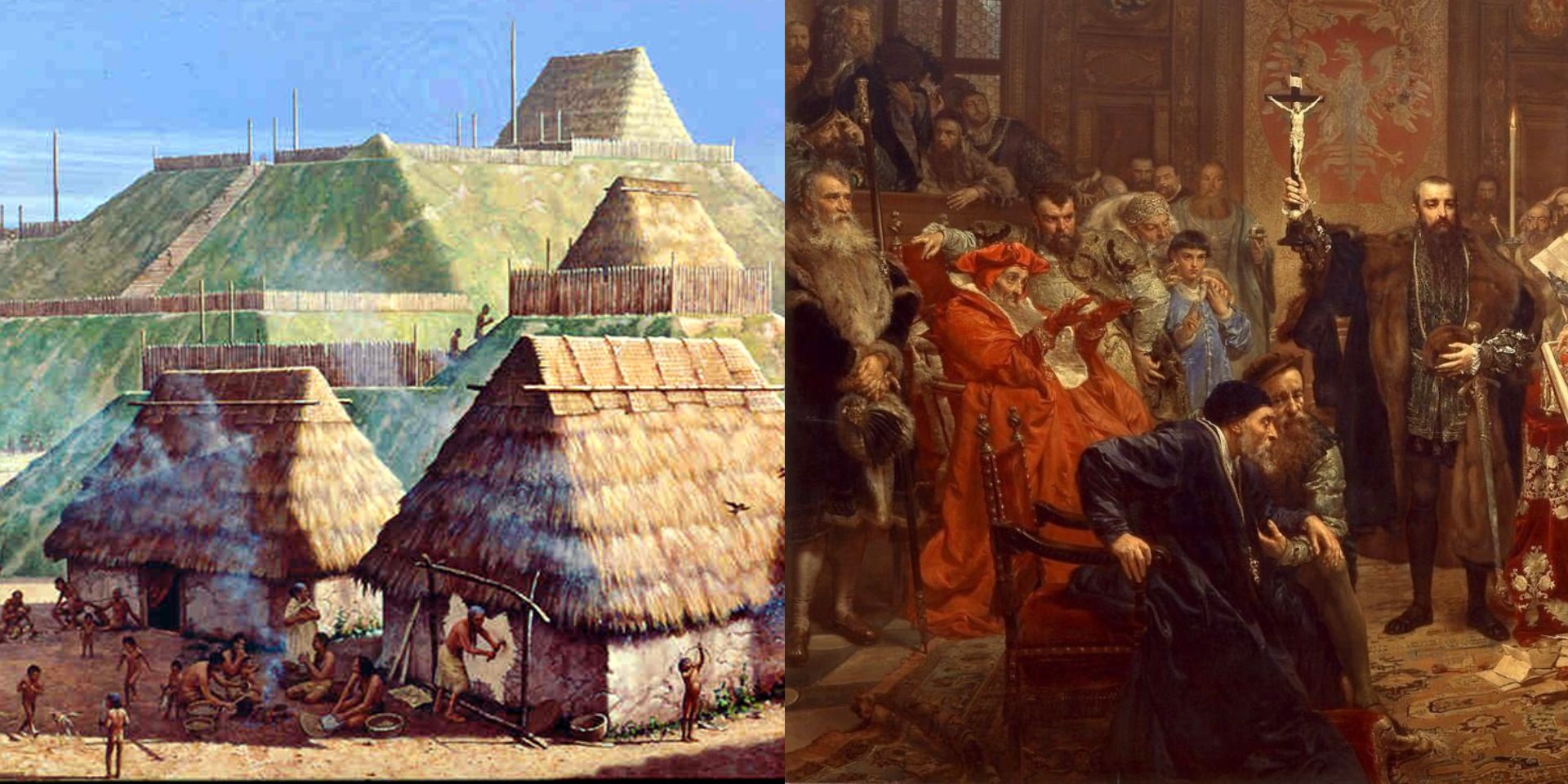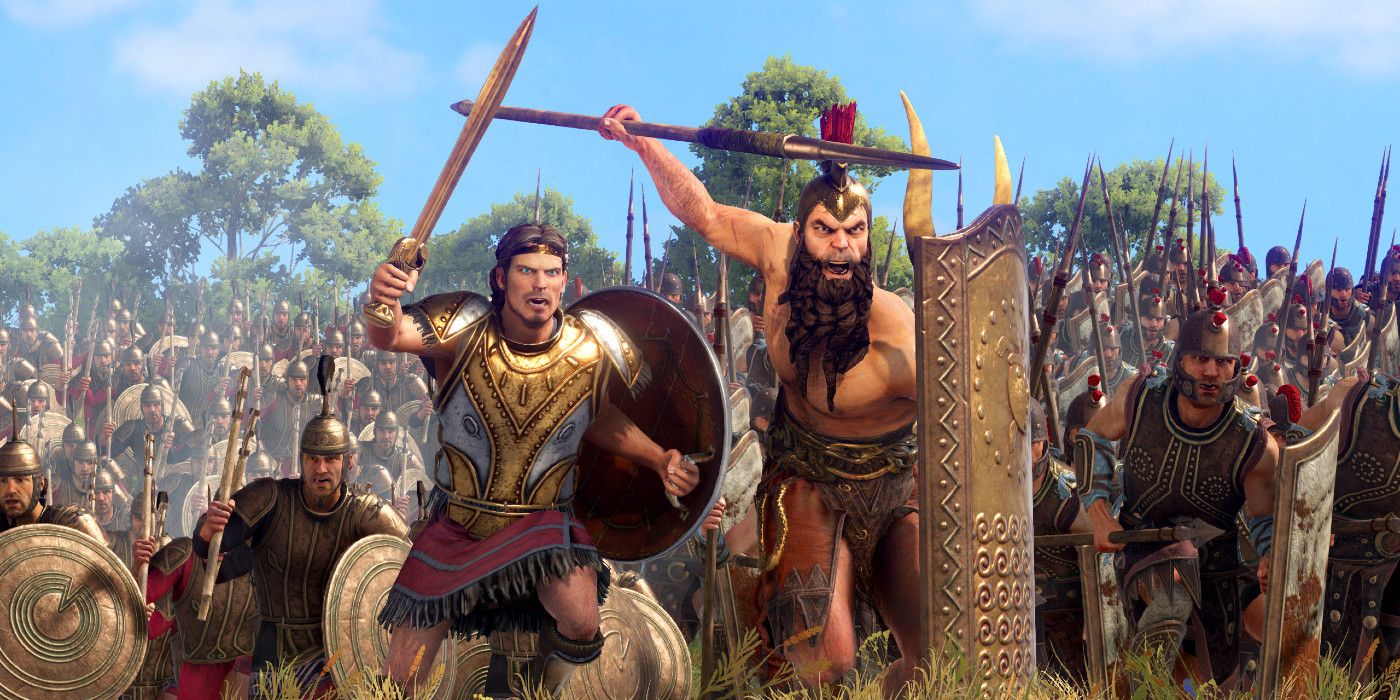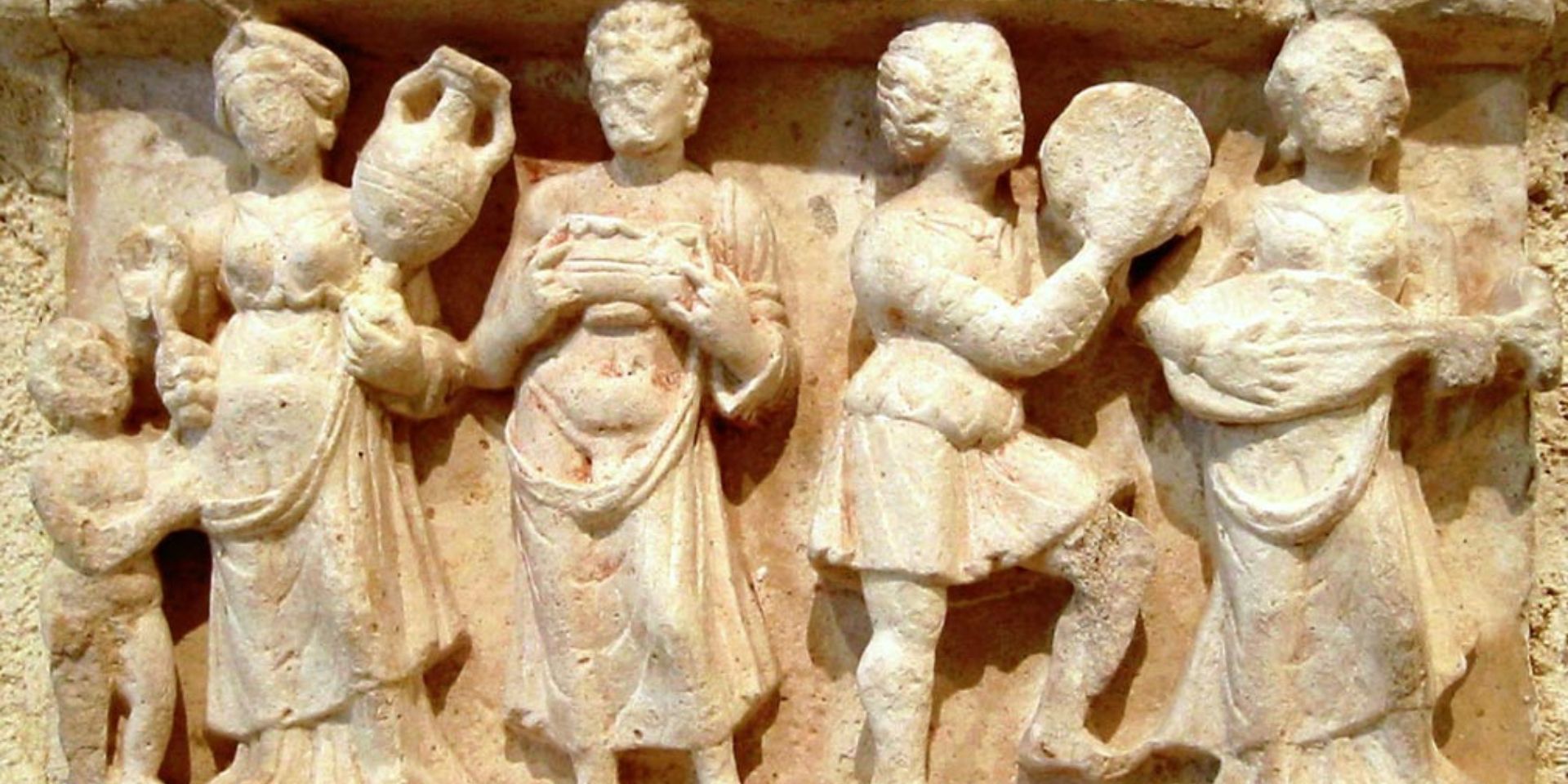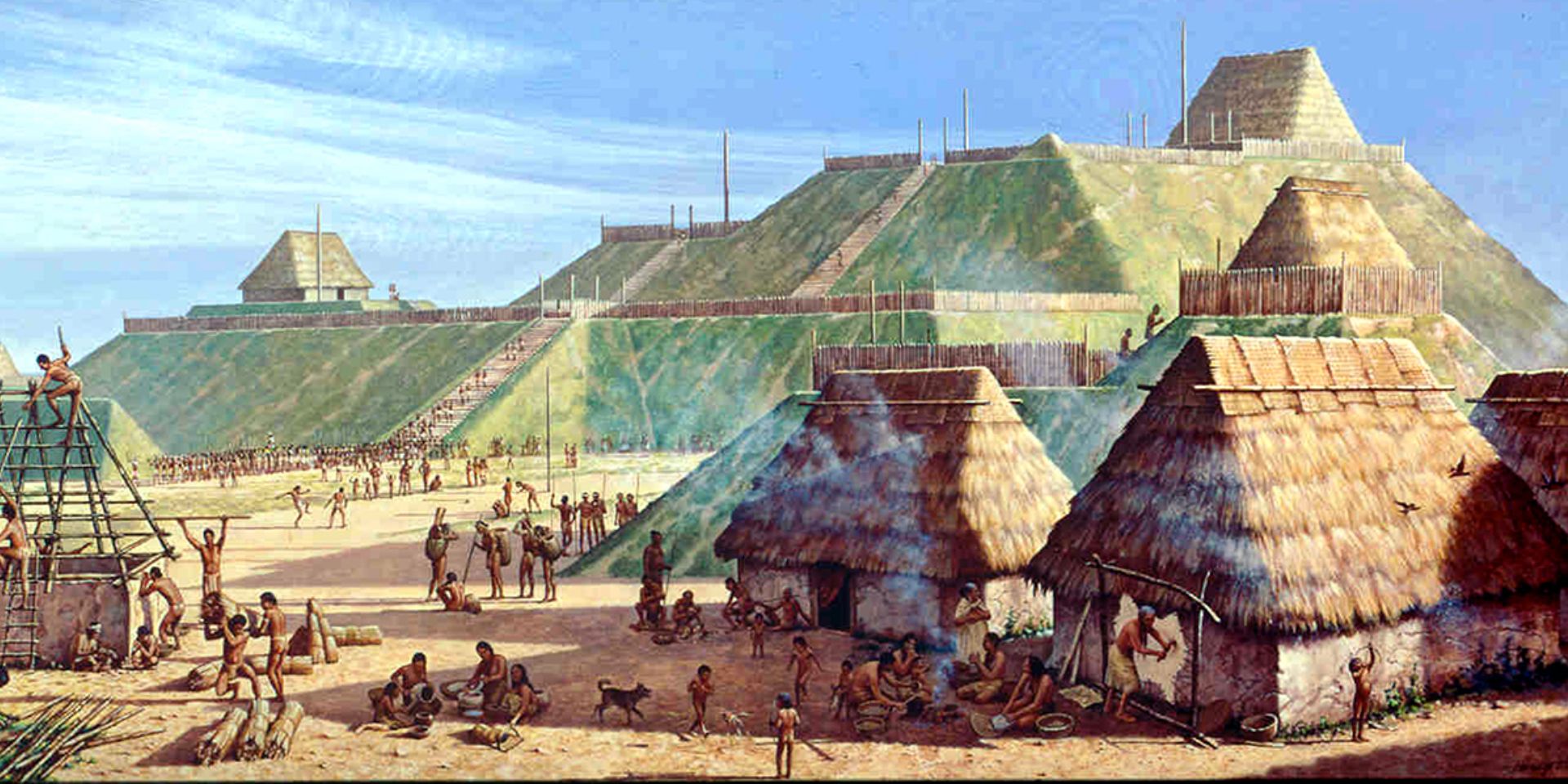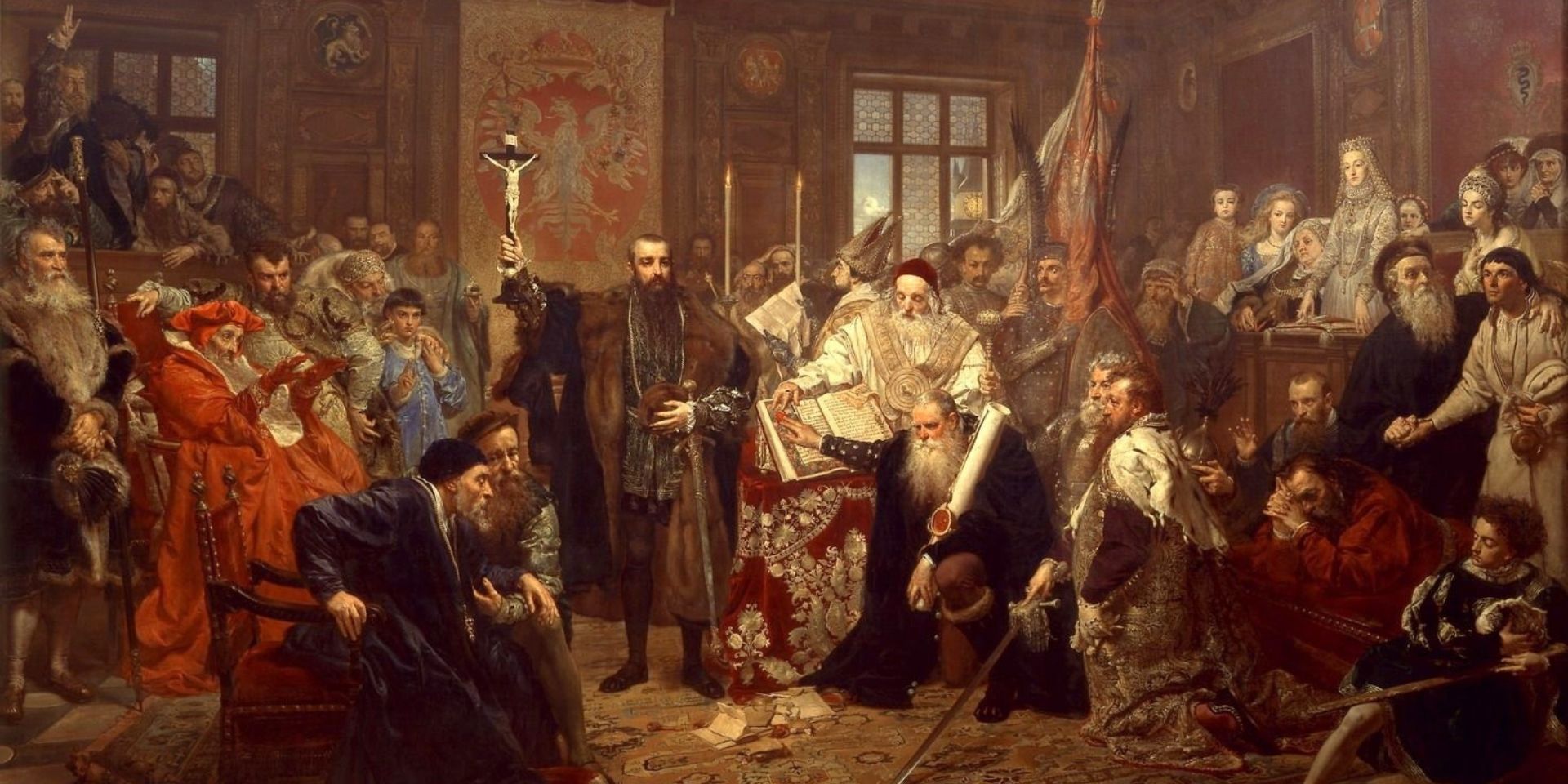Worldbuilding is a challenging task, whether it entails creating a fantasy land for a fantasy novel or designing a city for a tabletop RPG campaign; in that case, why not cheat and borrow details from interesting eras of real-world history? From the mysteriously apocalyptic ending of the Bronze Age to the mound-building civilization of North America, history is full of epic stories, culture, triumphs, and disasters Game Masters can pay homage to or explore in Dungeons & Dragons, "Powered By The Apocalypse" games, and other RPGs.
There's a pithy saying of unknown provenance that goes something like this: "history never repeats itself, but it rhymes." The same holds true for speculative fiction and the premises of roleplaying games - even as stories of heroism and adventure draw from older legends and tropes such as "The Hero's Journey," writers and game designers introduce their own innovative ideas and themes, colored by their own lives. Historical eras like the Roman Empire, The Hellenistic Diaspora, and Dynastic China are popular sources of inspiration for speculative fiction precisely because they "rhyme" with modern-day struggles and cultures while still being wildly novel in form.
There's another pithy saying, this one coined by literary critic L.P. Hartley: "The past is a foreign country: they do things differently there." Above all else, this quote is an admonition to not impose modern preconceptions (or harmful stereotypes) onto the cultures of pre-modern times. For a Game Master adapting periods of history to use in their RPG campaign, this means acknowledging the brutality and prejudices of warrior-aristocrats and other great "heroes" of history, while also acknowledging the humanity and importance of ordinary, lower-class folk in the past, citizens of history who were fundamentally people despite the different languages they spoke, clothes they wore, and values they upheld.
The Mediterranean Late Bronze Age Collapse (1200 BCE to 1100 BCE)
Roughly 3000 years in the past, the expansive Mediterranean civilizations of the Bronze Age – The New Kingdom of Egypt, Mycenaean Greece, Crete, the Hittite Empire – either collapsed or suffered massive reductions in prosperity and stability. What exactly caused the Late Bronze Age collapse is still a matter of debate among many historians (as detailed by the World History Encyclopedia); some believe the old bronze-working civilizations were overwhelmed by iron-working cultures (like the mythical Sea Peoples) able to equip their troops with metal weapons on a much larger scale. Others historians credit the collapse to economic and political problems, claiming factors like soil erosion and the breakdown of centralized authority making large-scale empires unsustainable. A Game Master trying to create a fantasy setting in this era can devise their own clever answer to the pressing question of "What killed the Bronze Age?"
The Indo-Greek Kingdoms (256 BCE to 10 CE)
In the wake of Alexander the Great's conquests, Greek and Macedonian populations, along with their art, traditions, and cultures, spread across and settled large swaths of the Mediterranean and Middle/East Asia, frequently syncretizing with local cultures in the process. World History Encyclopedia talks about how the Greco-Bactrian Kingdom and the Indo-Greek Kingdom arose in Central Asia and Northwest India – culturally Greek states that took on aspects of Indian culture from their neighboring kingdoms. Worldbuilding-focused Game Masters trying to create fantasy city-states born from the intersection of multiple cultures can draw inspiration from the beautiful coinage, statuary, murals, and inscriptions recovered from ancient Indo-Greek cities such as Ai-Khanoum – works of art mixing visual elements from Greek, Hindu, and Buddhist religious traditions.
The North American Mississippian Culture (800 CE to 1600 CE)
Between the 8th and 16th centuries CE, there was a thriving civilization of city-states, chiefdoms, and sprawling trade networks that stretched across the Midwest, Eastern, and Southeast parts of North America. This "Mississippian Culture" grew maize, created sophisticated handcrafts from copper and ceramic, and constructed massive burial mounds and earthwork pyramids, as can be seen in ancient sites such as Cahokia (an old city complex described by World History Encyclopedia). RPG Game Masters trying to create settings thoughtfully inspired by Pre-Colonial Native American societies could do worse than to research the history of the Mississippian Culture, a civilization rarely covered in Western history books.
The Golden Age And Decline Of The Polish-Lithuanian Commonwealth (15oo CE to 1700 CE)
During the Late Medieval period and Renaissance, the Polish-Lithuanian Commonwealth ruled over a large chunk of Eastern Europe, a delicate union of different cultures, ethnicities, and religions under the principle of the "Golden Liberty." The Commonwealth, according to the Encyclopedia Britannica, elected their monarch and set policy through assemblies of szlachta nobles, a somewhat rowdy "aristocratic republic" that gave people of the Commonwealth more freedom in comparison to the increasing centralized monarchies of Western Europe and Russia. The Golden Age of the Polish-Lithuanian Commonwealth and its decline due to wars and internal turmoil wound up inspiring large chunks of classic Polish literature and narrative elements of The Witcher 3: Wild Hunt. A Dungeons & Dragons Dungeon Master similarly interested in this period of history can add Winged Hussars, saber-flourishing aristocrats, and elements of traditional Polish culture into their campaign world.
Source: World History Encyclopedia – Cahokia, Encyclopedia Britannica – The Commonwealth Of Poland, World History Encyclopedia – Bronze Age Collapse, World History Encylopedia – Indo-Greek

